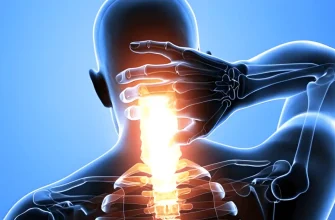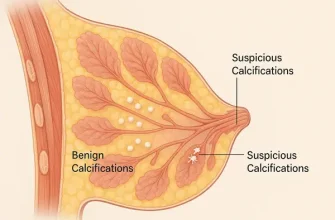Woke up with a sore throat and a stiff neck? You might be wondering if it’s just a passing cold or something more serious. A tight, painful neck combined with difficulty swallowing can be unsettling, leaving many to question whether it’s a simple viral infection or a sign of something more concerning, like meningitis or an abscess. Could acid reflux be the culprit, or is it swollen lymph nodes reacting to an infection? Understanding the possible causes and knowing when to seek medical help can make all the difference.
Recovery Time for Different Conditions (Days)
This chart visualizes the typical recovery times for various conditions, highlighting how some illnesses resolve quickly while others, like chronic acid reflux, require ongoing management.
What Causes a Stiff Neck and Sore Throat?
A stiff neck and sore throat appearing together can be alarming. While in many cases, these symptoms stem from minor infections or muscle strain, they can also indicate more serious conditions. Let’s explore the most common causes:
- Viral and Bacterial Infections – The flu, common cold, and mononucleosis often cause throat irritation alongside neck stiffness. Additional symptoms include fever, fatigue, coughing, nasal congestion, and body aches.
- Meningitis – A life-threatening infection that causes inflammation of the meninges, leading to a stiff neck, fever, and severe sore throat. Other warning signs include headache, nausea, vomiting, light sensitivity, and confusion.
- Tonsillitis – Inflamed tonsils can lead to both a sore throat and discomfort in the neck. It is often accompanied by swollen tonsils, white or yellow patches on the throat, difficulty swallowing, fever, and bad breath.
- Cervical Lymphadenitis – Swollen lymph nodes in response to infection can cause stiffness and pain in the neck. This condition may also present with tenderness, redness, warmth in the affected area, and general flu-like symptoms.
- Abscesses (Peritonsillar or Retropharyngeal) – Pockets of infection near the throat can restrict neck movement and cause severe pain. Additional symptoms include difficulty opening the mouth, voice changes (“hot potato voice”), fever, and difficulty swallowing.
- Acid Reflux (GERD) – Stomach acid can irritate the throat, leading to discomfort and muscular tension in the neck. Common accompanying symptoms include heartburn, regurgitation, chronic cough, hoarseness, and a sour taste in the mouth.
Causes of Common Health Issues (%)
| Cause | Percentage (%) |
|---|---|
| Viral infections | 45% |
| Bacterial infections | 30% |
| Acid reflux (GERD) | 10% |
| Muscle strain | 8% |
| Other causes | 7% |
This chart illustrates the primary causes of common health issues, with viral and bacterial infections being the most frequent contributors.
How Is It Diagnosed?
Accurate diagnosis is essential to determine the cause of these symptoms. Here are the main diagnostic methods used:
| Diagnostic Method | Process | Accuracy (1-10) | Estimated Cost (U.S.) |
|---|---|---|---|
| Physical Examination | Doctor checks for swollen nodes, tonsil inflammation, and fever. | 6-7 | $100-$200 |
| Throat Culture | A swab is taken to detect bacterial infections like strep throat. | 8-9 | $50-$150 |
| Blood Tests | Helps identify infections, mononucleosis, or inflammatory markers. | 7-9 | $50-$300 |
| MRI/CT Scan | Used if an abscess, meningitis, or spinal issues are suspected. | 9-10 | $500-$3,000 |
| Lumbar Puncture | Checks cerebrospinal fluid for signs of meningitis. | 9-10 | $1,000-$2,000 |
Treatment Options
The treatment depends on the underlying cause. Here’s what works best:
- For Viral Infections – Treatment focuses on symptom relief. Patients should get adequate rest, drink plenty of fluids, and use throat lozenges. Over-the-counter medications like ibuprofen or acetaminophen help manage fever and pain. Most viral infections resolve within 7-10 days with a 7/10 recovery success rate, as they depend on immune system response.
- For Bacterial Infections (Strep, Tonsillitis, Abscesses) – Doctors prescribe antibiotics such as amoxicillin, azithromycin, or penicillin. The course typically lasts 7-14 days. In severe abscess cases, drainage procedures may be needed, often requiring local anesthesia and a scalpel. The effectiveness of antibiotic treatment is around 9/10 when taken as prescribed.
- For Meningitis – This requires immediate hospitalization. Patients receive intravenous (IV) antibiotics like ceftriaxone or vancomycin along with corticosteroids to reduce brain inflammation. If viral meningitis is suspected, supportive care with fluids and pain management is provided. Hospital stays last from 7-14 days, and the recovery rate varies depending on the cause: bacterial meningitis has a 6-8/10 success rate when treated early, while viral meningitis typically resolves with an 8-9/10 success rate.
- For Acid Reflux (GERD) – Proton pump inhibitors (PPIs) like omeprazole, lansoprazole, or H2 blockers (famotidine) help reduce stomach acid and prevent irritation. Treatment duration varies, but long-term management may be required for chronic GERD. Lifestyle changes such as diet modification and weight management are also recommended. Medication effectiveness is around 8/10, but adherence to lifestyle changes can increase it to 9/10.
- For Muscle Strain or Swollen Lymph Nodes – Treatment includes warm compress application, NSAIDs like ibuprofen or naproxen for pain relief, and gentle neck stretches. If lymph node swelling is due to infection, it typically resolves within 1-2 weeks. The effectiveness of these treatments is about 7-8/10, depending on the severity of the strain or infection.
When to See a Doctor
If a stiff neck and sore throat are accompanied by any of these symptoms, seek medical attention immediately:
- High fever (above 102°F) that persists for more than 48 hours or worsens despite treatment.
- Difficulty breathing or swallowing, which may indicate swelling or obstruction in the throat.
- Severe headache and nausea, especially if accompanied by vomiting or dizziness.
- Light sensitivity and vision disturbances, which could signal neurological involvement.
- Rash or confusion, particularly if the rash is widespread, discolored, or does not fade under pressure.
- Stiffness that prevents normal neck movement, making it difficult to touch the chin to the chest.
- Persistent fatigue or body aches, which may suggest a systemic infection or underlying condition.
Editorial Advice
Reyus Mammadli, healthcare advisor, emphasizes the importance of recognizing warning signs early. “A sore throat and stiff neck can seem harmless but may indicate serious conditions like meningitis. If symptoms persist beyond 48 hours or worsen, consult a doctor promptly.”
Taking preventive measures such as good hygiene, vaccination (for meningitis and flu), and proper posture can reduce the risk of these conditions. Keep an eye on symptoms and listen to your body—it’s better to be cautious when health is at stake.
Effectiveness of Preventive Measures (1-10 Scale)
| Preventive Measure | Effectiveness (1-10) |
|---|---|
| Vaccination (flu, meningitis) | 9 |
| Hand hygiene | 8.5 |
| Avoiding close contact with sick individuals | 8 |
| Managing acid reflux | 7.5 |
| Proper neck posture | 7 |
This chart highlights the effectiveness of various preventive measures, with vaccination and hand hygiene being among the most effective strategies.
References
- Centers for Disease Control and Prevention (CDC) – Meningitis, strep throat, and tonsillitis.
- Mayo Clinic – Symptoms and diagnosis of meningitis, tonsillitis, lymphadenitis, and GERD.
- Cleveland Clinic – Peritonsillar abscess, strep infections, and swollen lymph nodes.
- Johns Hopkins Medicine – Neck pain causes and diagnostic methods.
- American Gastroenterological Association (AGA) – GERD treatment and management.










My friend had such a problem. He had strep throat, when he came to the doctor, the doctor prescribed a number of antibiotics and drugs. Now it’s all over.